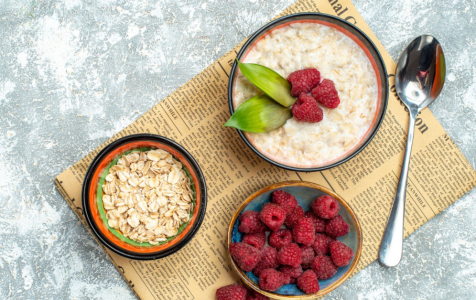Lorem ipsum dolor sit amet, consectetur adipiscing elit. Ut elit tellus, luctus nec ullamcorper mattis, pulvinar dapibus leo.
Is it necessary to restrict calories first when you want to build muscles?
This post answers a very common question amongst individuals who are interested in getting fit and building muscle namely; should one lose weight before building muscle?
When embarking on a fitness journey, one common question arises: Is it advisable to reduce on the calorie intake before starting the process of developing muscles? In short, there is no one right answer: it is different based on your objectives, body type and other health considerations. This article looks at the advantages and disadvantages of both these methods, provides tips from the experts, and enables you to select the one that best suits your circumstances.
Understanding Body Composition
It is important to know the difference between losing weight and losing fat before choosing the way you are going to proceed. Weight loss is a reduction in the total mass of the body which comprises of the muscle, fat and water elements. Fat loss is different from weight loss because the main aim is to decrease the fat percentage in the body and not necessarily the overall weight.
Weight loss Before Building Muscle:
When It’s Beneficial
• Higher Body Fat Percentage: If you are either obese or have a high level of body fat you may benefit from losing some weight first. Research has indicated that even losing as much as five percent of the body weight can have positive effects on the health of an individual including lowering of cholesterol, reduced blood pressure and increased sensitivity to insulin.
- Joint Relief: During high-impact training activities, it is possible for people with excess weight to experience joint pain or even injury. This pressure can be reduced by losing some weight to enable one be more active in performing certain tasks that require some level of energy.
Pros
- Increased Energy Levels: This enhances your stamina and energy levels that would enable you to perform your workouts in the best way possible.
- Reduced Risk of Injury: There is also a reduced pressure on your joints thus making the exercises more enjoyable without putting your body at risk of incurring injuries.
Cons
- Potential Muscle Loss: If you try to lose the weight very fast or try to do it by consuming very few calories then you end up losing muscle mass which is not healthy for your body as it slows down your metabolism rate.
- Decreased Metabolism: It has been noted that by taking very few calories in a day, your BMR is reduced, making it hard to keep on losing weight in the future.
Muscling up Before Losing Weight:
When It’s Beneficial
• Normal Weight Obesity (NWO): In case you have a normal BMI but a high body fat percentage, and low muscle mass index, it is recommended that you first work on building muscles. Gaining muscle mass helps in enhancing the body composition and decreasing the ill effects of NWO including cardiovascular diseases and metabolic syndrome.
Pros
- Boosted Metabolism: Muscle tissue is known to utilize more calories in the body even at rest than the fat tissue. Muscle mass helps to boost your Resting Metabolic Rate (RMR) which is important in the process of losing weight in the long run.
- Improved Self-Esteem: Strength training has also been associated with the improvement in self esteem and mental health. The study carried out among the adolescent population found that regular resistance training boosted the students’ perceptions of strength and body image in only one month.
Cons
- Delayed Visible Results: If you have high body fat then you may not be able to see muscles as they are hidden by the fat until the fat is lost.
- Possible Weight Gain: Therefore, while you are working to build muscle, you may actually gain weight and that may not be very encouraging especially if you are checking your weight on the scale.
Is it Possible to Burn Fat and Build Muscle at the Same Time?
Indeed it can be done and this is referred to as the body recomposition process. This type of approach is used to help the person lose fat and gain muscle so that they are not only reducing the weight but changing the shape of the body.
Key Strategies
- Calorie Management: To help in the fat loss process while ensuring that you do not lose muscle mass, consume slightly fewer calories than you burn. Excessive deficiencies may prevent muscle growth and may also slow down the metabolic rate.
- High Protein Intake: Muscle proteins are used in the repair and building of muscles and that is why protein is important in the diet. The Targets: 1.6 to 2.2 grams of protein per kilogram of body weight per day.
- Balanced Training: Both strength training to gain muscle mass and aerobics to lose fat should be incorporated in the workout regimen.
- Adequate Recovery: Muscle recovery and hormonal balance are also dependent on rest and sleep and these are both linked with fat loss and muscle gain.
Expert Insight
Stephanie Nelson, MS, RD, MyFitnessPal’s lead nutrition scientist, emphasizes the importance of sustainable habits:
“No matter what your weight and health goals are, make sure that you don’t lose muscle in the process of losing weight. To achieve this, ensure you are consuming enough protein from whole foods and doing strength training exercises”.
Making the Decision: What do You Need?
It should also be in accordance with the patient’s objectives, medical condition, and preference. Here are some considerations:
- Consult a Professional: For those who wish to engage in any form of fitness regimen, it is advisable to first seek the advice of a health care provider or a fitness trainer to determine one’s fitness level and possible goals to achieve.
- Define Your Goals: Do you want to lose some weight, gain muscle mass, increase your workout capacity or just enhance your health? Defining the goals will help you in the way you will be taking.
- Monitor Progress Beyond the Scale: This is why, instead of focusing on the number on the scale, it’s better to track your improvements with body fat percentage, strength and how your clothes fit.
Practical Tips for Success:
- Balanced Nutrition: It doesn’t matter what your goal is, you should include whole foods, lean protein, healthy fats, and complex carbohydrates in your diet.
- Stay Hydrated: It is also important to take enough water because it helps in metabolism and the general well being of the body.
- Consistency is Key: The saying ‘the best things in life are the things that are worth waiting for’ is very true in this case.
- Mindset Matters: Thus, one should work on the development of a positive outlook and embrace the progress made even in small measures.
The Bottom Line
If you are to lose weight first then build muscle, build muscle first then lose weight or if you are going for body recomp, the most important thing is to make sure that you are willing and able to make permanent changes to your lifestyle. Make your fitness regime as specific as possible to your body and don’t forget that change doesn’t happen overnight.





